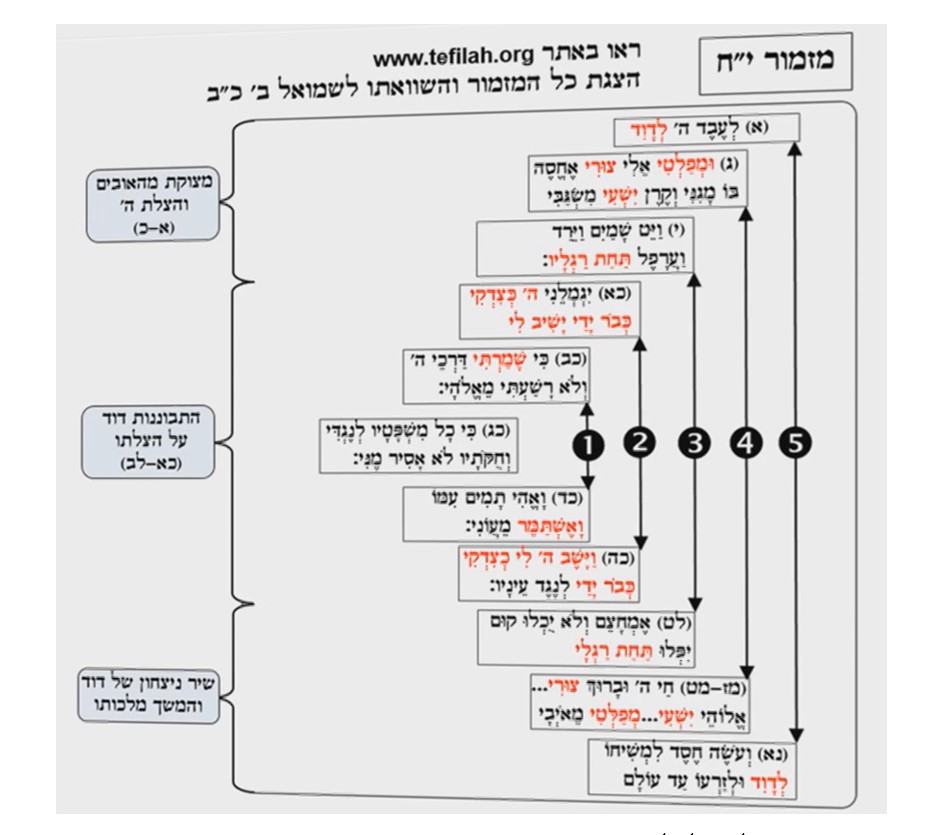Tehillim 18 | David’s Song
Psalm 18 is a lengthy song of David, offered to God in gratitude for rescuing him throughout the many events of his life. An almost identical version of our psalm appears at the end of Sefer Shmuel (Shmuel II 22). Accordingly, both the heading and the placement of this psalm in Shmuel indicate that it serves as a summary of David’s life.
In the attached video, Dr. Beni Gesundheit discusses the chiastic structure of the psalm (see the illustration below). At the heart of the structure is this verse: “For all His laws are before me; I will not cast aside His statutes.” (18:23). Here, David explains that his loyalty in keeping God’s laws is what earned him redemption and salvation from his enemies.
One of the intriguing motifs the structure highlights is the concept of feet. At the beginning of the psalm, David offers an elaborate description of God’s powerful revelation as He comes to rescue him. One of these descriptions reads: “Dense cloud beneath His feet” (18:10). Later in the psalm, a similar expression appears — but this time, it refers to David’s own feet: “They fell beneath my feet” (18:39).
This transition — from the cloud beneath God’s feet to enemies falling beneath the feet of David — demonstrates the psalm’s progression. At first, David is helpless. He cries out and passively waits for God’s miraculous salvation. But as the psalm continues, God teaches him to fight and to stand on his own two feet: “He trains my hands for battle so that my arms can bend a bow of bronze” (18:35). And not only that — He even grants him the shield of His victory: “You gave me the shield of Your victory; Your right hand sustained me” (18:36). It is no surprise, then, that the same divine power displayed in God's revelation is ultimately expressed through David’s own battles, waged with the strength God bestows upon him.
The chapter closes with the verse, “He grants great victories to His king and shows loyalty to His anointed, to David and his seed forever” (18:51), thereby forming a perfect circle with the beginning of the Sefer Shmuel. In her prayer, Channa had said: “May He grant might to His king and raise up the horn of His anointed” (Shmuel I 2:10).



This website is constantly being improved. We would appreciate hearing from you. Questions and comments on the classes are welcome, as is help in tagging, categorizing, and creating brief summaries of the classes. Thank you for being part of the Torat Har Etzion community!